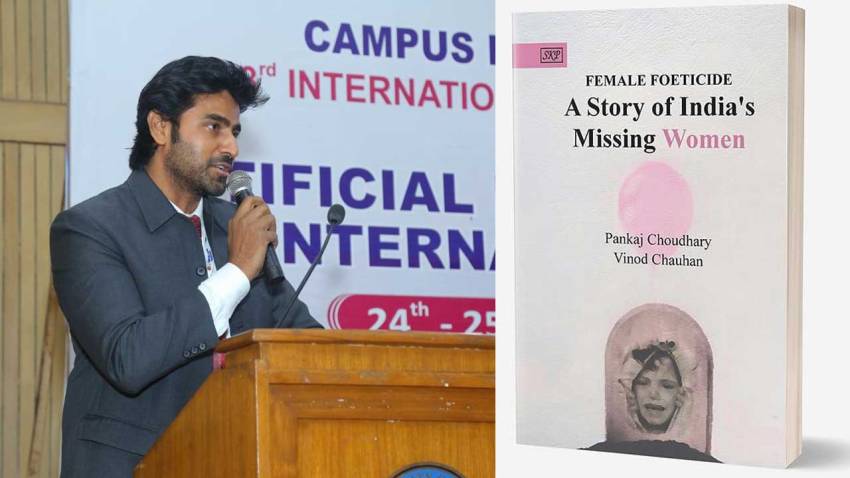Prof. Pankaj Choudhary's Female Foeticide: The story of India’s missing women sheds light on ingrained evils of the society

New Delhi : Prof. Pankaj Choudhary's latest book, "Female Foeticide: Story of India's Missing Women," has lately received international attention, including a presentation at Princeton University in the United States. This thought-provoking book dives into the underlying issue of female foeticide within a broad legal and social framework, providing light on its causes, the evolution of legal measures to combat it, and the challenges that remain in implementing effective solutions.
Female foeticide has long been a sad phenomena in India, and Prof. Pankaj Choudhary's book provides a critical examination of the socioeconomic reasons that contribute to its prevalence. The book shows a dismal reality by studying developments in sex determination technologies and their impact on practise. Legal efforts to remedy this age-old dilemma have failed to keep pace with significant advancements in medical science.
The analysis of the execution of India's Pre-Conception and Pre-Natal Diagnostic Techniques (PCPNDT) Act, which attempts to prevent sex-selective abortions, is one of the book's main points. Prof. Choudhary contends that the law's poor implementation is largely attributable to a misalignment between legal measures and the sophisticated medical tools accessible today.
The book which is available on Amazon, thoroughly analyses the judicial response to female foeticide during the last decade and recent years to offer readers with a comprehensive grasp of the topic. Prof. Choudhary emphasises the importance of this issue, given the ongoing arguments among academics and civil society groups about the role and limitations of judicial action in tackling this deeply embedded societal problem.
Furthermore, the book takes an interdisciplinary approach to the subject, including viewpoints from numerous fields of study. Prof. Choudhary, in doing so, not only exposes the intricacies of female foeticide, but also makes a persuasive case for revisiting the proposed revisions to the PCPNDT Act made in March 2016. According to the book, these adjustments must be carefully evaluated before being implemented to ensure their efficiency.
Pankaj Choudhary works as an Assistant Professor at the University of Delhi’s campus law centre. He is also a Professional Legislative Fellow with the Bureau of Education and Cultural Affairs of the United States Department of State, and a distinguished member of the International Council of Jurists until 2022. He is also a Directed studies fellow at The Hague Academy of International Law. He has spoken on behalf of India in various forums such as the World Economic Forum and the Commonwealth Youth Forum.
Prof. Choudhary's book was recently recognised by Princeton University, demonstrating its importance and global relevance. It is anticipated that the groundbreaking work's observations and recommendations would spark important dialogues and promote concrete efforts to solve the tragedy of India's missing women.








